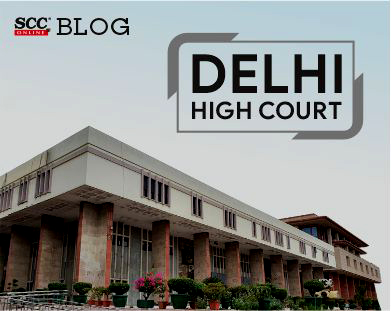Delhi High Court: The Single Judge Bench of Jasmeet Singh, J. has set aside the conviction and 6-year jail term awarded to a man in 2003, noting that the trial court record had been lost and material documents including witness depositions were now not available for its perusal.
Background
The present suit was filed to challenge the conviction and order of sentence passed by the ASJ in 2003, wherein the appellant had been guilty of charges under Sections 304 and 34 of Penal Code, 1860 (IPC) and was sentenced to 6 years rigorous imprisonment along with fine. However, the appellant was acquitted of the charges under Section 201 of IPC. The appeal was filed in 2003 but the Trial Court record was not placed before this Court. As this Court did not receive the Trial Court record, in February 2009, this Court called for a report from the Registry regarding tracing out of the Trial Court record.
In July 2009, this Court directed the concerned Deputy Registrar to hold an enquiry as to why despite directions, the Trial Court record had not been placed before the Court. Again, in November 2009, this Court directed that the counsel for the parties will make endeavour to re-construct the record and place it before the concerned Registrar to facilitate re-construction of the Trial Court Record. In September 2010, the Court recorded that whatever the Trial Court record could have been reconstructed was re-constructed. Further, the appellant was entitled to get the entire Trial Court Record in accordance with the High Court procedures, but the appellant’s counsel stated that the paper book was incomplete.
Analysis, Law, and Decision
The Court noted that the documents which could not be filed due to their non-availability with the Police included the inquiry report of the ACP, Final Inquiry Report of the S.D.M. (South), D.D. Entries, Seizure Memos, Arrest Memos, List of Witnesses, Postmortem Report, FSL/Viscera Report, Inquest Report, M.L.C. and Roznamcha. The Court also noted that the depositions of the witnesses, both prosecution and defence, had not been re-constructed and were not available on the Trial Court Record.
The Court noted that despite repeated efforts of this Court, the Trial Court record had not been re-constructed as the same was lost. Further, the Court agreed with the submission made by the counsel for the appellant that in the present case, the witnesses had already turned hostile, and the impugned judgment was based on preponderance of possibilities. The Court also opined that re-trial was also not in the interest of justice as the material documents were not available.
The Court held that “to affirm the conviction of the appellant, the perusal of the Trial Court record was the essential element of hearing the appeal. Every appellant had a right to satisfy the Appellate Court that the material evidence available on record did not justify his conviction and this was a valuable right which cannot be denied to an appellant. Every accused carries with him the presumption of innocence even at the appellate stage”.
The Court relied on State of UP v. Abhay Raj Singh, (2004) 4 SCC 6, wherein the Supreme Court stated that “if the High Court finds that reconstruction was not practicable but by ordering retrial interest of justice could be better served – adopt that course and direct retrial – and from that stage law shall take its normal course. If only reconstruction was not possible to facilitate High Court to hear and dispose of the appeals and the further course of retrial and fresh adjudication by Sessions Court was also rendered impossible due to loss of vitally important basic records – in that case and situation only, the direction given in the impugned judgment shall operate and the matter shall stand closed”.
Thus, the Court allowed the appeal and had set aside the order of judgment and sentence passed in 2003 by the Trial Court.
[Ramesh Kaushik v. State of Delhi, 2022 SCC OnLine Del 4185, decided on 28-11-2022]
Advocates who appeared in this case :
For the Appellant: Senior Advocate Jayant Sud;
Advocate Sarthak Maggon;
Advocate Kartik Jasra;
Advocate Randeep Sachdeva;
For the Respondents: Additional Public Prosecutor Aashneet Singh.







